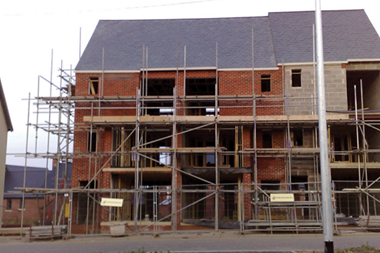With every day, every week and every year that passes, the statistics showing a housing shortage get ever harder to ignore.

The gap keeps getting wider, and the obvious point that we need more homes across all tenures is being shouted from the rooftops by political parties, business groups, tenants and people in all age groups. With each statistic comes a human story, and tales of keyworkers leaving London, fed up with struggling to put roofs over their heads, are commonplace.
This week’s news from the housing association sector is the growing uncertainty over supported housing. In November, the chancellor introduced a cap on housing benefit for tenants in the social sector. Many of these tenants live in housing schemes that provide extra care and support, with higher rents and service charges often covered by housing benefit.
New figures from the National Housing Federation show that more than 50,000 households could be affected over the course of just one year, losing an average of £68 per week each. In a survey of housing associations, it was found that 82,000 specialist homes would become unviable and be forced to close. Across the sector this equates to an estimated 156,000 homes - 41% of this type of housing.
Devastating proposal
A rapidly ageing population makes the need for specialist housing greater than ever, with nearly 50,000 extra homes needed over the next decade. Building work on an estimated 2,400 new specialist homes has already been cancelled as a result of the announcement of the social sector housing benefit cap, and an additional 9,270 homes would not be able to be built if the Local Housing Allowance (LHA) cap goes ahead.
The current proposal that rents are capped at the LHA for those in supported housing is therefore devastating. These are society’s most vulnerable people, for whom there is meant to be a safety net, and to whom support would give independence.
Following an uproar (but not one as big as house price increases), the current proposals are being reconsidered while discussions are held on the future of supported housing and what should apply. However, the impact of this uncertainty has already meant that homes that would be built are being shelved. There is no point having a shiny building if you can’t afford to run the services for the people in it.
At a time when we need to build homes of all tenures, this is a crying shame. However, even more crucial is the question of what will happen to the people who need these homes and this support. Where will they go?
The property industry is a powerful one and should get behind the campaign to support the most vulnerable. We need new homes for first-time buyers, we need homes for renters and we need to improve standards. But most of all we need to support the most vulnerable members of our society by providing them with homes, alongside the organisations and communities who can help them achieve some independence.
Geeta Nanda is group chief executive of Thames Valley Housing





























No comments yet